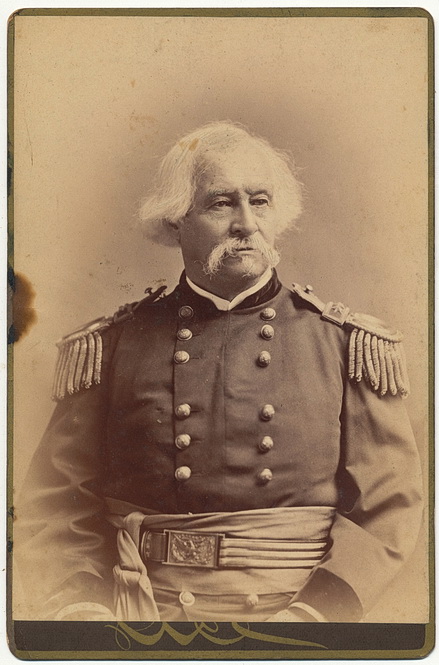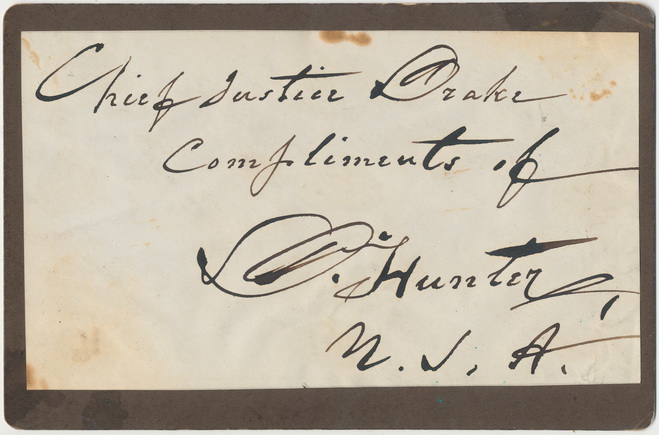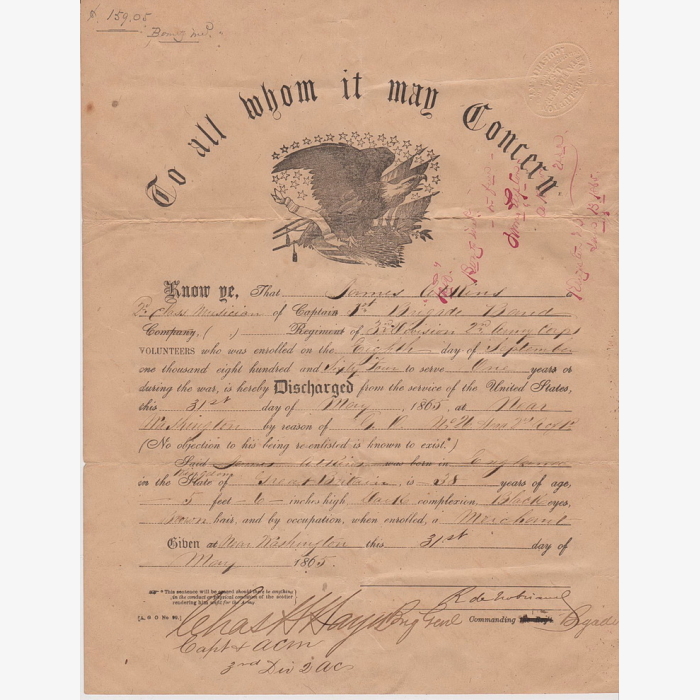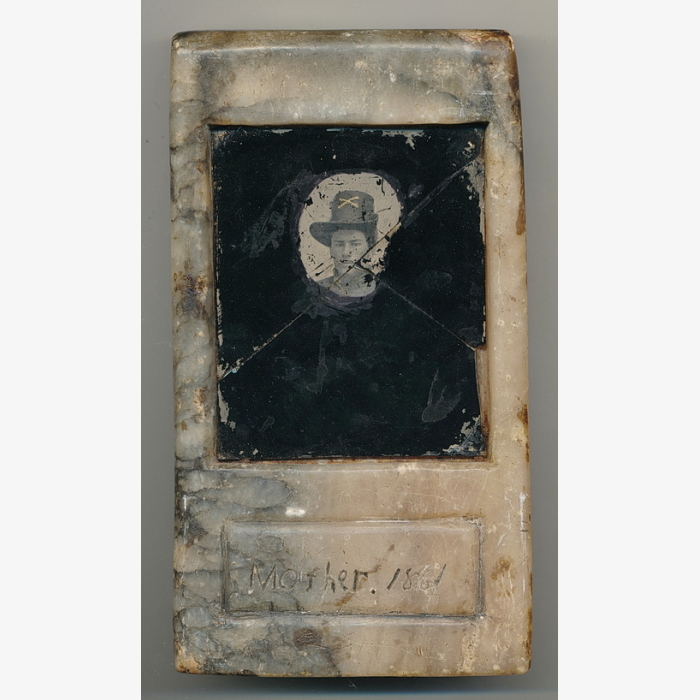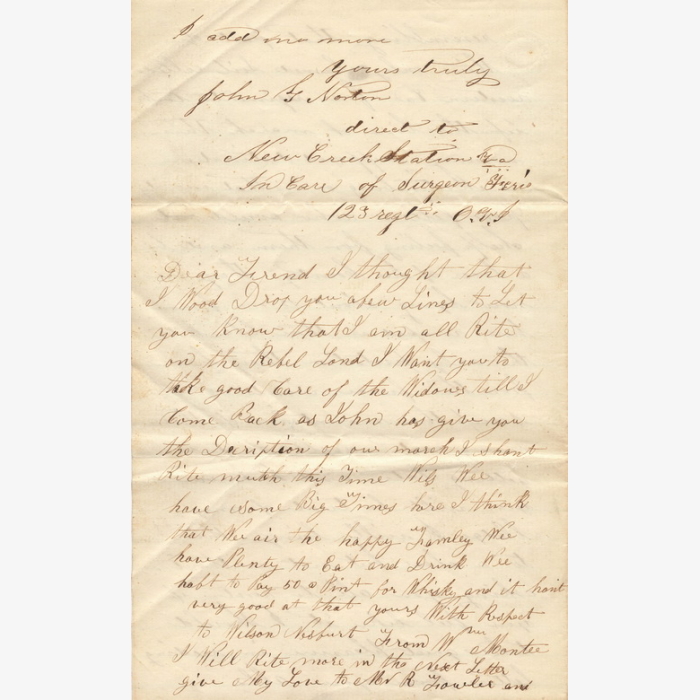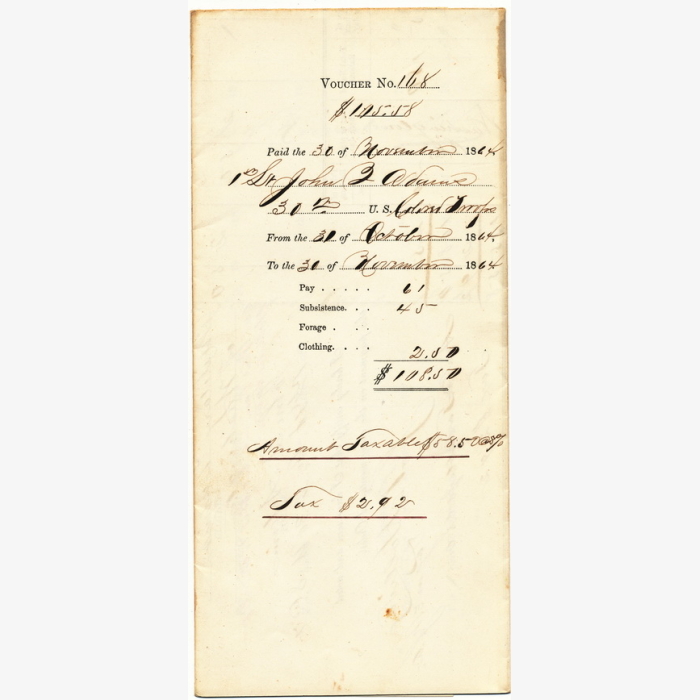Description
Signed cabinet card by Major General David Hunter, close friend to Lincoln, and who is considered to be one of the more controversial Union generals of the war. Graduating from West Point in 1822, he spent the years before the Civil War serving in small positions on the northwest frontier. On May, 17, 1861, he was appointed brigadier general, in command of the 2nd Division in Brig. General Irvin McDowell’s army. Promoted to major general in August, 1861, he would take part in the First Battle of Bull Run, in which he was seriously wounded. Hunter was later assigned to lead a division in Missouri, and eventually became commander of the Western Department. Taking over the Department of the South in 1862, he would be responsible for capturing Fort Pulaski. A fervent abolitionist, Hunter would abolish slavery in the Department of the South in May, 1862. President Lincoln would however reverse the action, since Hunter had surpassed his authority. He would go on to raise the 1st South Carolina, an all-black regiment, which Congress approved. In June, 1862, Hunter would attempt to capture Charleston, South Carolina but would be defeated at Secessionville. Following the defeat, he would be temporarily suspended from duty. In May, 1864, he would be assigned to the Department of West Virginia and would win a victory at the Battle of Piedmont. Hunter would however receive much criticism after retreating from Lynchburg which allowed General Jubal Early to carry out his raid into Washington. He would eventually resign his command in August, 1864 as a result. Following the close of the war and Lincoln’s assassination, he would be named the president of the committee assigned to try the assassination conspirators. Later brevetted to brigadier and major general, he would live in Washington until his death in 1886. Hunter was one of the most despised Union generals in the north and would infuriate Confederates after announcing the “abolition” of slavery in his department and forming the 1st South Carolina Colored Infantry. Hunter’s policy of burning Confederate land and properties, which included the torching of the Virginia Governor’s residence and the Virginia Military Institute, solidified his death sentence if ever captured. The reverse of the card bears a bold ink inscription and signature from Hunter to Chief Justice Charles Drake reading “Chief Justice Drake Compliments of D. S. Hunter N.S.A.” . Drake would serve as Chief Justice from 1870 – 1885. This view dates to Hunter’s later years as he is shown here dressed in his Civil War uniform. Measures 6 1/2″ x 4 1/4″.
